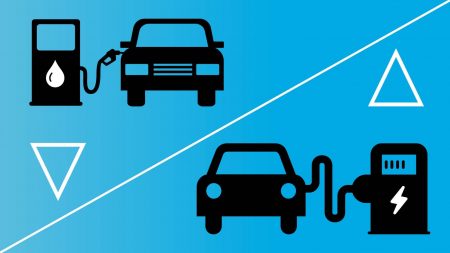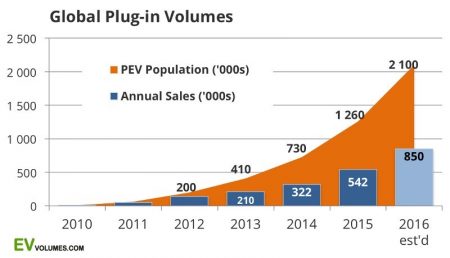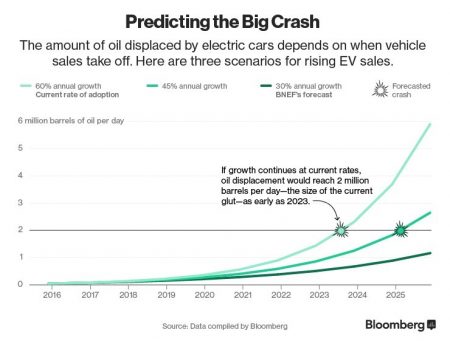November 5, 2016 – In a recent energy report investors in fossil fuels were told that it may be the right time to start moving money away from an industry wedded to gasoline and diesel-powered transportation. The report issued by Fitch Ratings described the arrival of electric vehicles (EVs) as the beginning of an “investor death spiral” for the global oil industry with oil demand slowing at a faster rate than predicted because of the acceleration in the electrification of transport infrastructure.
To prove the point this week the United States designated 48 national electric vehicle charging corridors covering over 40,000 kilometers (25,000 miles) of highways in 35 states and ensuring that a charge station will be available within every 80 kilometers (50 miles). Other supporting actions from U.S. states, Department of Energy (DOE), businesses, universities and utilities include:
- 28 states, utilities, and vehicle manufacturers committed to deploying a charging infrastructure along the designated corridors.
- 24 state and local governments committed to increase procurement of EVs for their fleets.
- Two DOE studies are evaluating optimal charging station deployment along the designated corridors.
- 38 businesses, non-profits, universities and utilities are implementing EV charging stations in their work locations.
- $4.5 billion in loan guarantees from the federal government committed to deployment of charging stations.
- 55 interstates will be part of the charging corridors with signage identifying where vehicle charging stations can be accessed.
The end goal is the build out of an zero-emission coast-to-coast infrastructure.
For investors Bloomberg New Energy Finance points to the recent growth rate of EVs displacing as much as 2 million barrels of oil per day demand as early as 2023. The current compound annual growth rate is expected to slow but the offset drop in EV prices as more models enter the marketplace will create an oil shock, not once, but many times, as more EVs appear on roads. The Bloomberg study which produced the line graphs with a number of scenarios showing the points in time where oil shocks will occur concludes, “someone will be left holding the barrel.” It goes on to say the smart money generally moves sooner than later and that moving away from oil-based stocks is inevitable.
So what are the fossil fuel companies doing about a technological power revolution that is rapidly approaching?
Just four years ago executives and BP and ExxonMobil were predicting that EVs would make up no more than 5% of vehicles on the road between 2030 and 2040. In its 2040 energy outlook, ExxonMobil, that year confidently predicted no impact on the fossil fuel industry. But it appears that oil companies have changed their minds of late. It is no longer the case that EVs will be a minor segment of the market and that oil and natural gas will remain the dominant forms of energy on the planet. They are beginning to realize that electricity is the energy of the 21st century and that clean energy is critical to their long-term success and to the confidence held by shareholders about their business models.
So Shell has recently established a New Energies division with a $200 million initial budget, a modest start. But Total, France’s largest oil and gas company, has put over one billion Euros into a battery storage company. And Statoil in Norway has invested big money in German wind farms. While even ExxonMobil, as I posted yesterday, has hedged its bets by investing in carbonic fuel cell technology being deployed in thermal-energy power plants to sequester carbon.
The latter is the same company that allegedly buried the scientific evidence it discovered back in the 1970s for climate change caused by human industrial activity. In a recent statement the company acknowledged that “the risk of climate change is clear and the risk warrants action.” It goes to state “increasing carbon emissions in the atmosphere are having a warming effect. There is broad scientific and policy consensus that action must be taken to further quantify and asses the risks.” In its acknowledgement, ExxonMobil pledges to reduce emissions in its operations as well as help consumers reduce their emissions.











